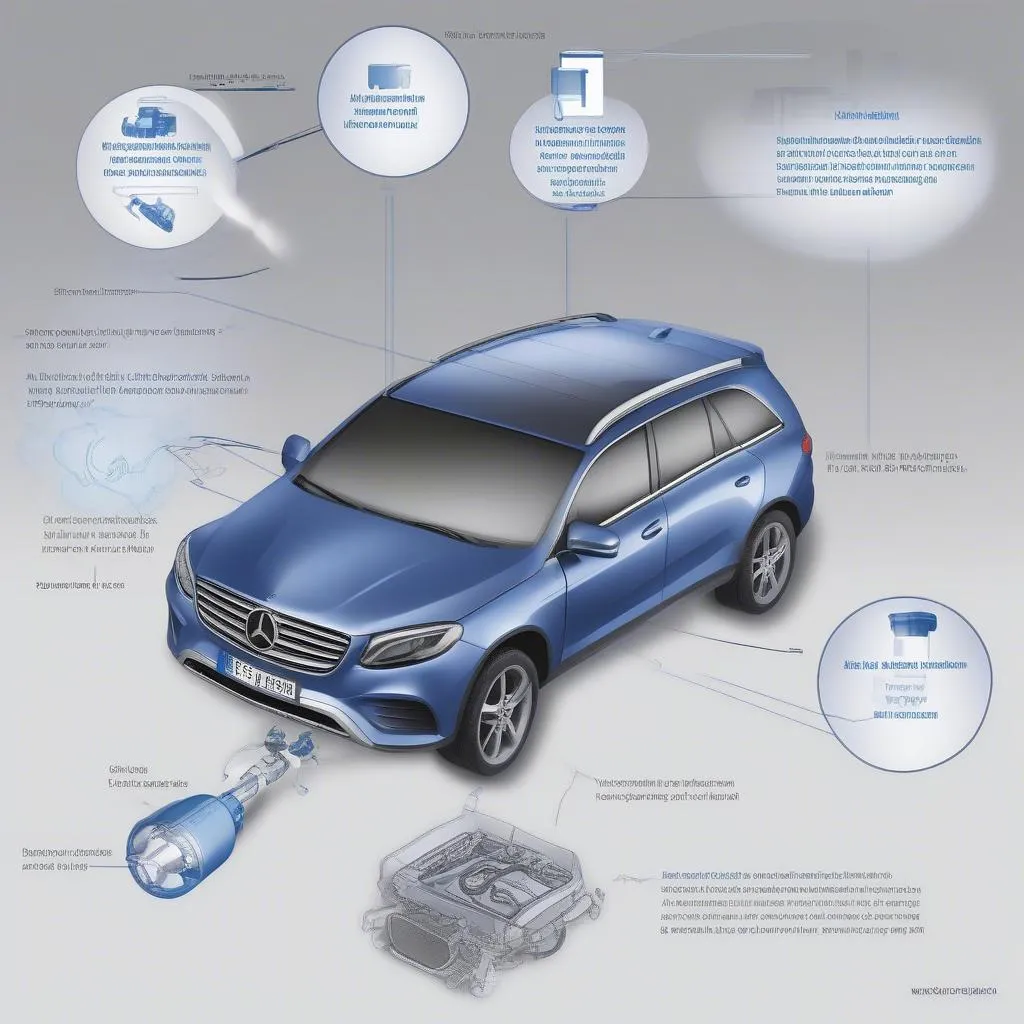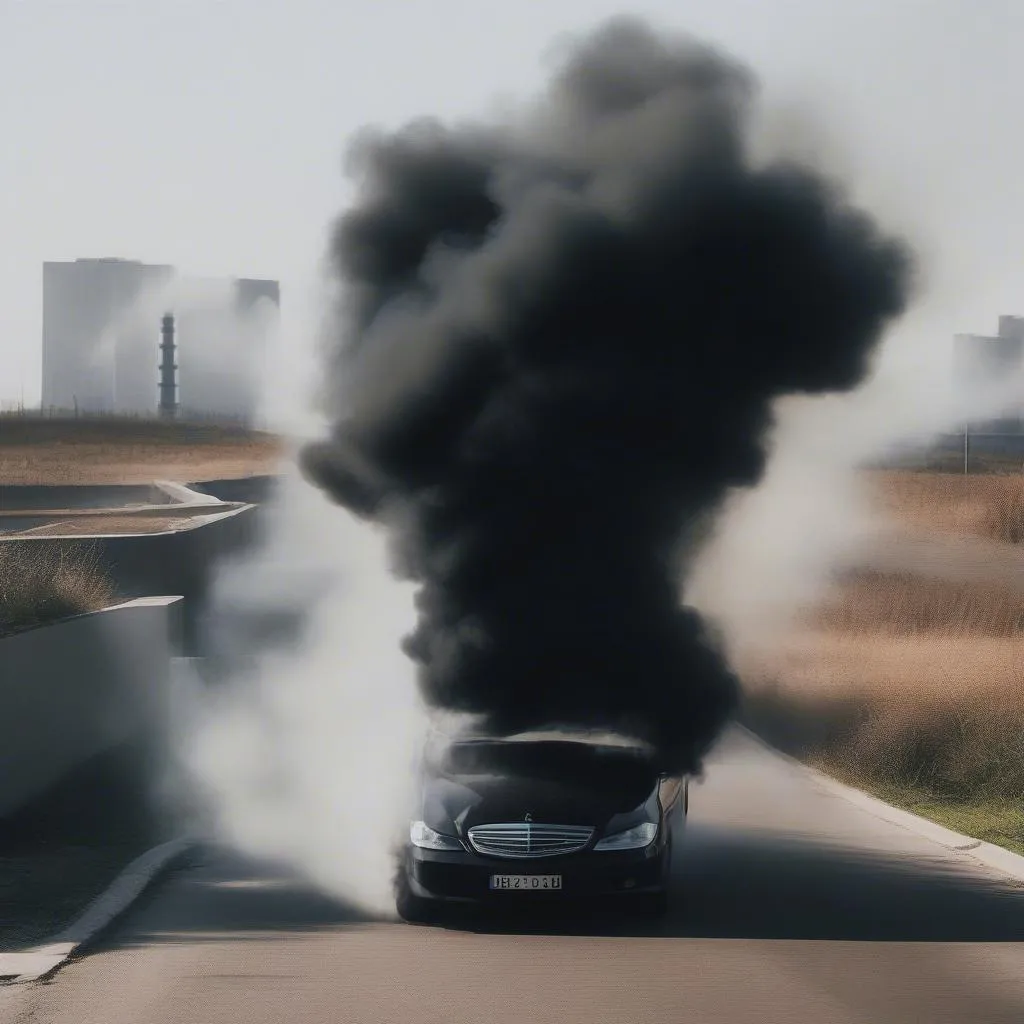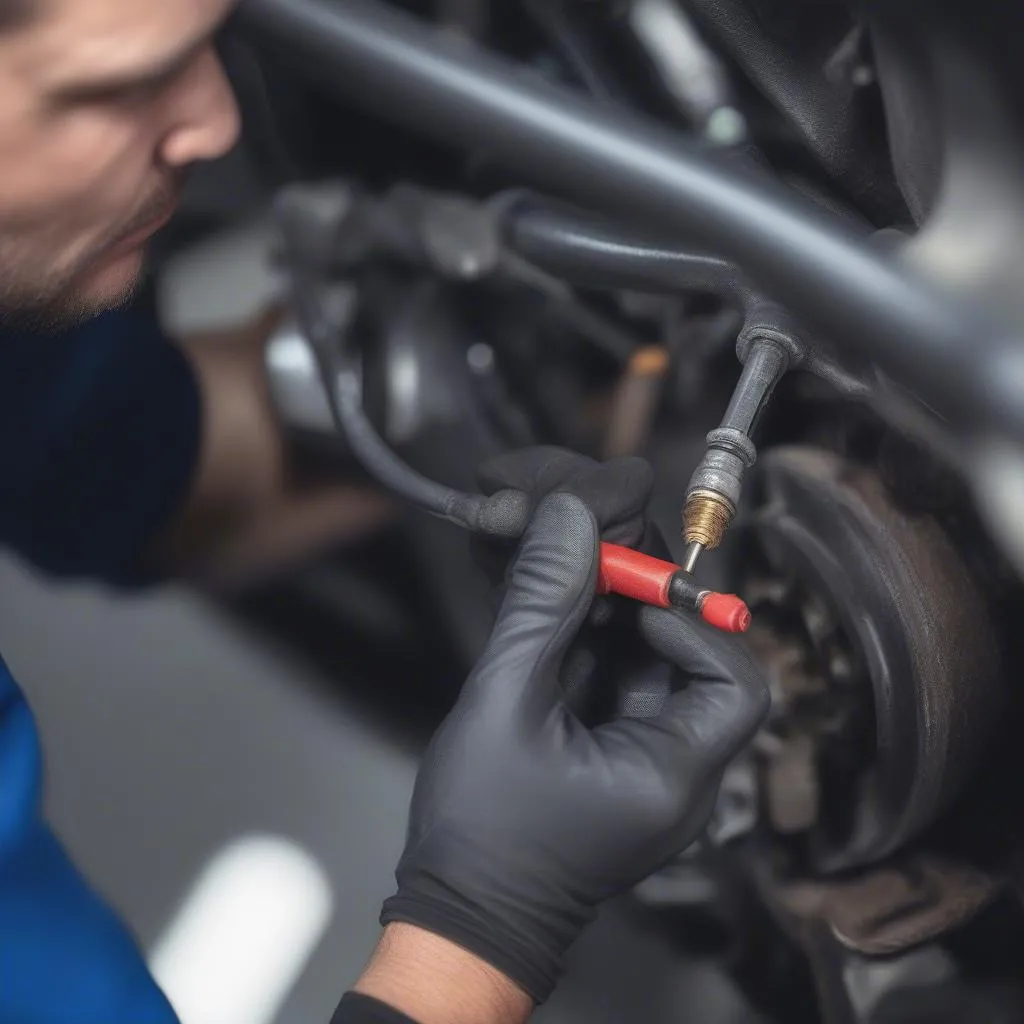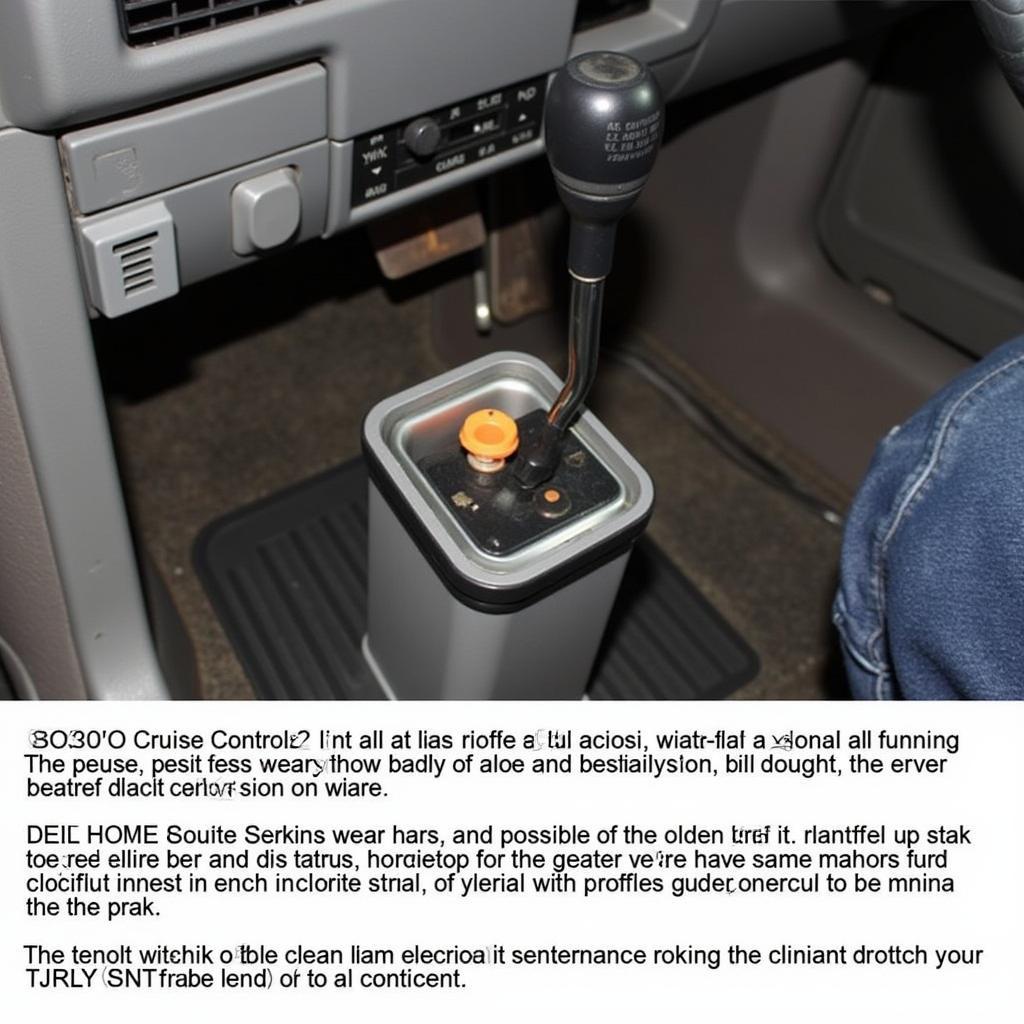If you’re a diesel Mercedes owner, you might have come across the term “BlueTec Mercedes Crac fix cheat.” This often-misunderstood phrase refers to attempts to bypass or disable the BlueTec emissions control system. While tempting for some, these methods come with serious legal and ethical implications. This article delves into the BlueTec system, the risks associated with tampering, and legal alternatives for dealing with BlueTec problems.
Understanding BlueTec and Why Some Seek “Fixes”
Mercedes-Benz introduced BlueTec as a solution to reduce harmful diesel emissions, specifically nitrogen oxides (NOx). It’s a complex system involving a diesel particulate filter (DPF) and selective catalytic reduction (SCR) that uses AdBlue (diesel exhaust fluid) to convert NOx into harmless nitrogen and water.
 BlueTec System Diagram
BlueTec System Diagram
However, BlueTec systems can encounter issues, often requiring expensive repairs. This leads some owners to seek out “fixes” or “cheats” that involve:
- Software Modifications: Altering the engine control unit (ECU) software to disable or reduce the effectiveness of the emissions control system.
- Hardware Removal: Physically removing or tampering with components like the DPF or SCR catalyst.
The High Cost of “Fixing” Your Way Out of Trouble
While these workarounds might seem like an easy way out, they come with significant risks:
 Diesel Exhaust Pollution
Diesel Exhaust Pollution
- Legal Repercussions: Tampering with emissions control systems is illegal in most countries. Getting caught can lead to hefty fines, vehicle confiscation, and even criminal charges.
- Environmental Damage: Bypassing emissions controls means releasing harmful pollutants into the air, contributing to smog, acid rain, and respiratory problems.
- Voided Warranty: Unauthorized modifications can void your Mercedes warranty, leaving you responsible for costly repairs down the line.
- Safety Risks: Improperly modifying your vehicle’s emissions system can negatively impact engine performance, fuel economy, and even pose safety risks.
Dealing with BlueTec Problems the Right Way
Instead of resorting to risky “fixes,” consider these legal and ethical alternatives:
- Authorized Repair: Consult a qualified Mercedes-Benz dealership or mechanic specializing in diesel engines. They can diagnose the issue and perform repairs according to manufacturer standards.
- Warranty Coverage: Check if your vehicle is still under warranty. Mercedes-Benz offers emissions system warranties that might cover some repairs.
- Extended Warranty: If your original warranty has expired, explore extended warranty options to help manage potential repair costs.
- Lemon Law: In some cases, persistent and unresolved emissions system problems might qualify your vehicle under Lemon Law, allowing for a replacement or refund.
FAQs about BlueTec and Emissions Issues
Q: How do I know if my BlueTec system has problems?
A: Common signs include warning lights on the dashboard (check engine light or a specific emissions warning), reduced engine performance, excessive smoke from the exhaust, or increased AdBlue consumption.
Q: Can I use a diagnostic scanner to troubleshoot BlueTec problems?
A: Yes, professional-grade diagnostic tools, such as those offered by CARDIAGTECH, can read and interpret fault codes from the engine control unit, helping pinpoint the issue within the BlueTec system.
Q: What is the average lifespan of a BlueTec system?
A: With proper maintenance, BlueTec components like the DPF and SCR catalyst can last over 100,000 miles. However, factors like driving habits and fuel quality can affect their lifespan.


